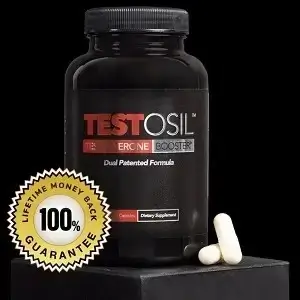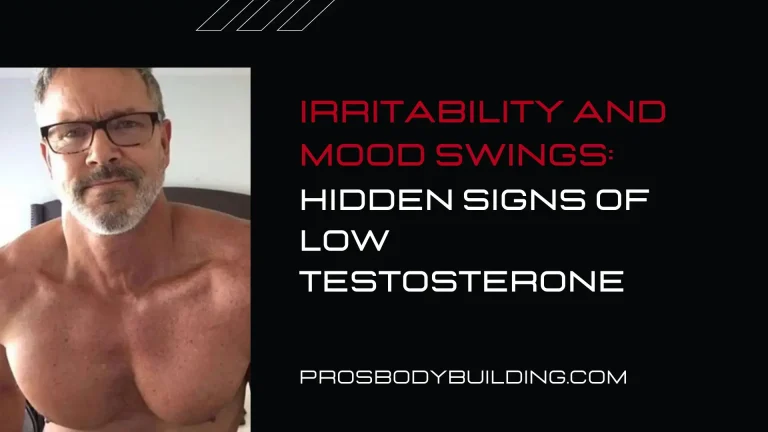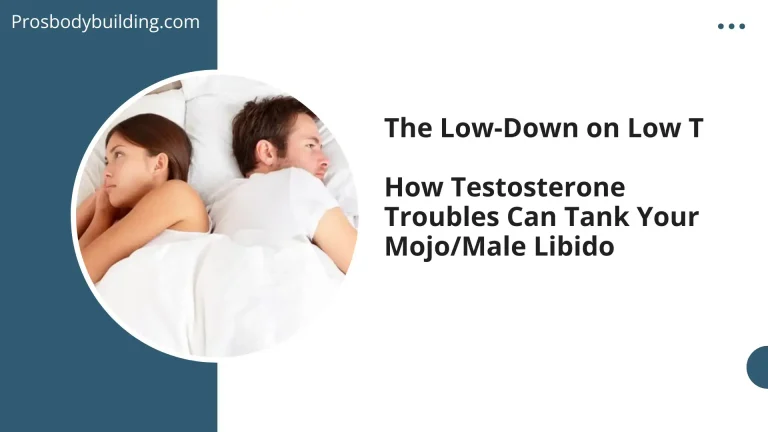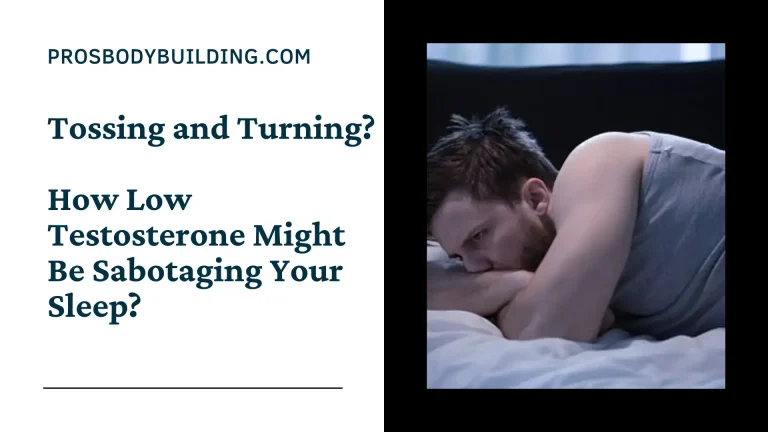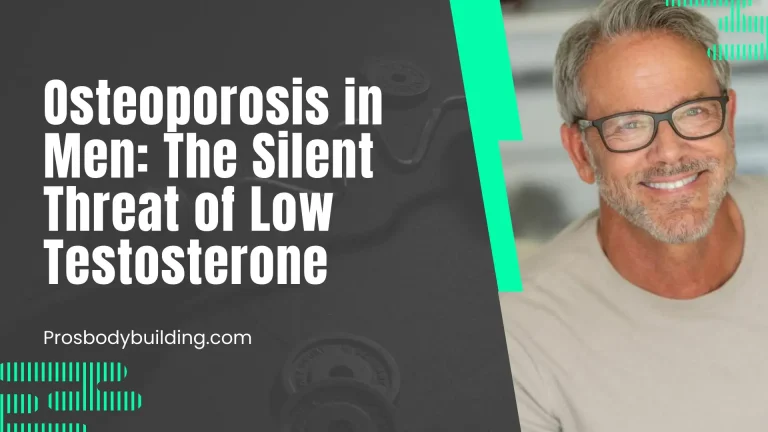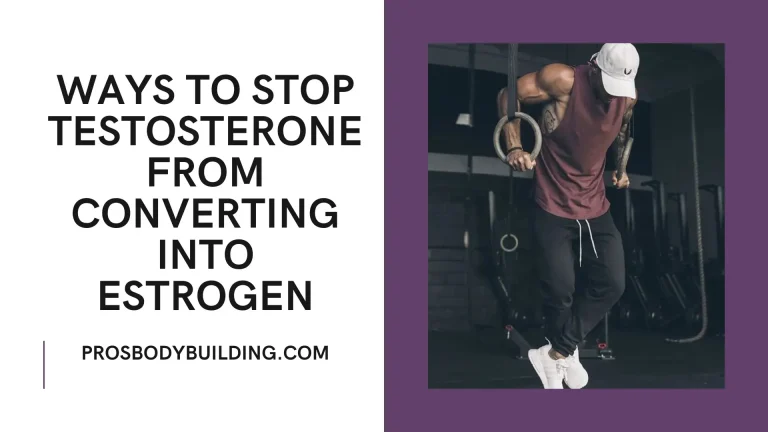15 Alarming Low Testosterone Symptoms in Men – What To Watch For in 2024
Guys, let’s face it – nobody likes talking about their hormones, especially when it comes to testosterone. But here’s a shocking statistic: up to 40% of men over 45 may have low testosterone levels! As a man, your testosterone plays a crucial role in everything from your energy levels to your love life.
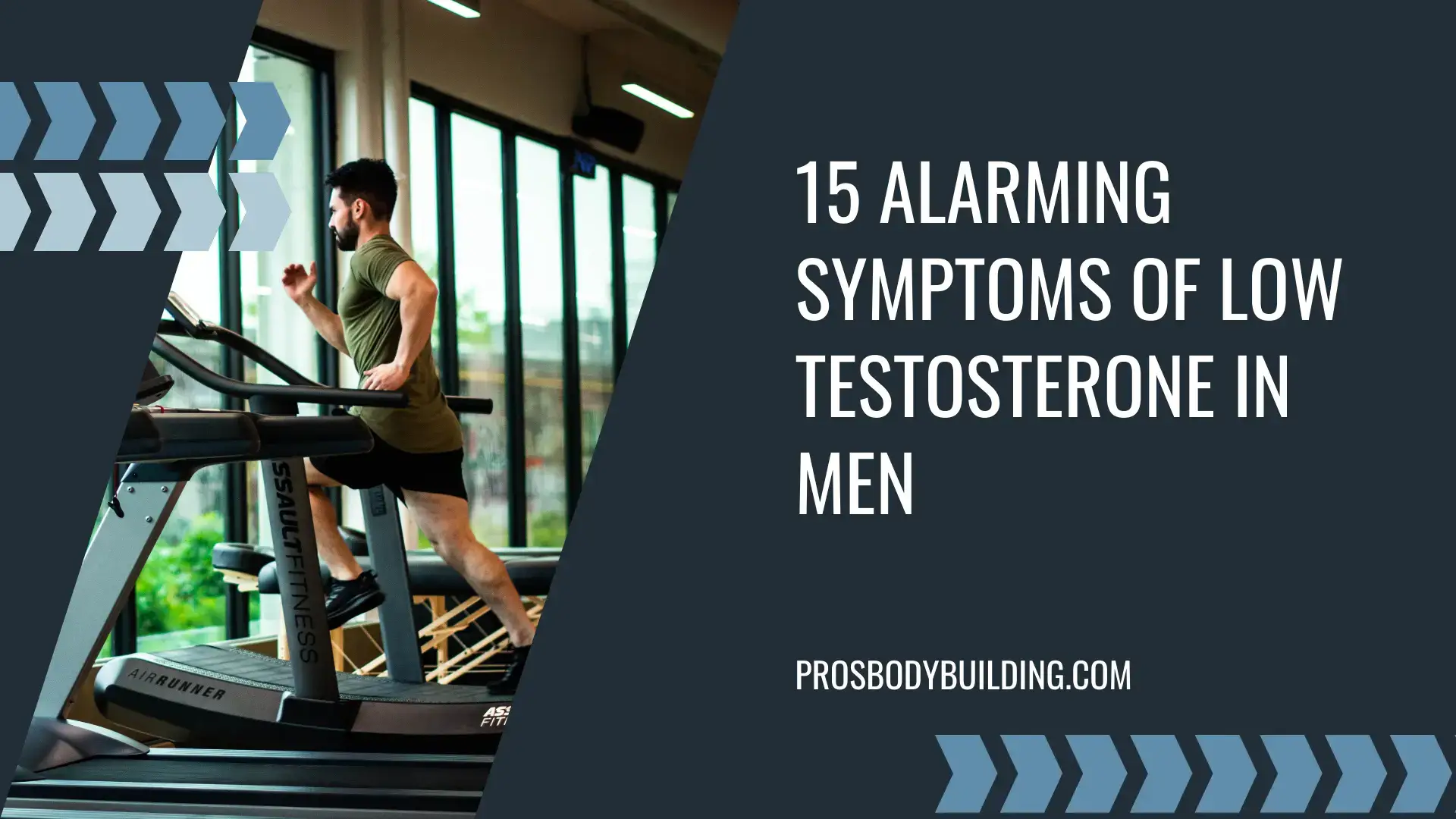
So, it’s time we break the silence and dive into the world of low T. In this article, we’ll explore the 15 most common symptoms of low testosterone in men. Trust me, some of these might surprise you! Whether you’re in your 30s or your 60s, knowing these signs could be a game-changer for your health and well-being. Let’s get started!
Physical Symptoms of Low Testosterone
When your testosterone levels take a nosedive, your body is often the first to sound the alarm. Here are some physical signs that might be telling you something’s up:
1. Unexplained weight gain, especially around the midsection
Notice your belt getting a bit tighter? Low T can lead to increased body fat, particularly in the belly area. It’s not just about looks – this type of fat is associated with various health risks. Some of the most common problems that excess belly fat can result in include diabetes and cardiac issues.
Thus, it is important to keep a check on your T levels to ensure your belly fat remains within healthy limits.
2. Decreased muscle mass and strength
If you’re hitting the gym as hard as ever but your gains seem to be disappearing, low testosterone might be the culprit. Testosterone is crucial for building and maintaining muscle mass. However, with advancing age testosterone levels in your body begin waning off and this tends to affect your muscle mass and strength. You simply do not get the same results as you did in your twenties.
3. Increased body fat
Along with that muffin top, you might notice fat accumulating in other areas too. This shift in body composition is a common sign of hormonal imbalance.
4. Reduced body hair growth
Are you shaving less often? A decrease in body hair can be a subtle sign of low testosterone levels. Its interesting to see how a lot of men lose hair from their torso and arms/legs as they get older. One of the main reasons behind this, of course, is a drop in their testosterone levels.
I am over 40 now and even though I am quite fit for my age since I have been training ever since I was 19, I have less hair on my body as compared to what I did a decade ago. So, this is clearly a sign of my testosterone going downhill.
5. Development of gynecomastia
This is a fancy term for enlarged breast tissue in men. If you’re developing “man boobs” despite not gaining weight everywhere else, it could be due to a hormonal imbalance. A drop in testosterone and an in increase in estrogen levels in your body often the underlying cause of gynecomastia or man boobs which most men find extremely embarrassing.
Sexual and Reproductive Symptoms
Let’s talk about sex, baby! (Sorry, couldn’t resist.) Your testosterone levels play a huge role in your sexual health and function. Here are some signs that low T might be affecting your love life:
6. Decreased libido or sex drive
If your enthusiasm in the bedroom is waning, it might not just be stress or age – low testosterone could be dampening your desire. You need to remember that testosterone is the primary male sex hormone which is responsible for controlling your libido or sexual appetite as well.
7. Erectile dysfunction or difficulty maintaining an erection
Trouble getting or keeping it up? While there can be many causes, low testosterone is definitely one to consider. Low testosterone not only leads to a drop in your libido but can also make your erections weaker or softer making it hard for you to satisfy your woman in bed.
Another common effect of low testosterone is that is reduces the intensity of orgasms .
8. Reduced sperm count and fertility issues
Planning for a family? Low T can affect your swimmers, potentially making conception more challenging. Low testosterone is not just proven to reduce your sperm count but can also lead to unhealthy sperm marked with decreased sperm motility.
9. Smaller testicle size
Yes, we’re going there. A noticeable decrease in testicle size can be a sign of low testosterone production. So, if you notice your testicles getting smaller in size, it is a clear sign and indication of a drop in your testosterone levels. Testicular atrophy is what is this phenomenon is termed as.
10. Hot flashes
Surprise! It’s not just women who can experience these. Men with low T might find themselves suddenly breaking out in sweat for no apparent reason.
Emotional and Cognitive Symptoms
It’s not all physical – low testosterone can mess with your mind too. Here are some mental and emotional signs to watch out for:
11. Mood swings and irritability
Finding yourself snapping at loved ones more often? It might not be just stress – hormonal changes can affect your mood significantly. Testosterone is usually supposed to be the hormone that gives men their aggressive nature.
But this is not all. It is also the hormone that is behind your good mood and well-being. Lack of testosterone in your body is likely to make you irritable. This is something that is so very common among middle-aged and older men.
The Grumpy old man syndrome is an attribute of falling testosterone levels in older men.
12. Decreased motivation and self-confidence
That go-getter attitude seems to have gotten up and gone. Low T can sap your motivation and make you doubt yourself. It can affect your confidence as well as your risk-taking ability.
13. Difficulty concentrating or “brain fog”
If you’re having trouble focusing or feeling mentally sharp, it could be more than just lack of sleep. Testosterone plays a role in cognitive function too.
14. Increased risk of depression and anxiety
While the relationship is complex, there’s evidence that low testosterone can contribute to feelings of depression and anxiety.
15. Sleep disturbances, including insomnia
Tossing and turning all night? Hormonal imbalances can wreak havoc on your sleep patterns.
Other Less Common but Important Symptoms
While i’ve covered the main 15, there are a few other symptoms worth mentioning:
- Decreased bone density – This puts you at higher risk for osteoporosis and fractures.
- Anemia or low red blood cell count – Feeling unusually tired? This could be why.
- Changes in cholesterol levels – Low T can affect your lipid profile, potentially increasing cardiovascular risk.
- Thinning of facial and body hair – Yes, we mentioned body hair earlier, but some men might notice changes in facial hair growth too.
When to See a Doctor
Alright, so you’ve read through the list and a few (or maybe more than a few) symptoms are ringing bells. What now? Here’s when you should consider talking to a healthcare professional:
- If you’re experiencing multiple symptoms from this list, especially if they’re affecting your quality of life.
- If you notice sudden or drastic changes in any of these areas.
- As part of your regular check-ups, especially as you age. Don’t be shy about bringing up concerns about your testosterone levels.
Remember, testosterone testing is a simple blood test. Your doctor might also check related hormones to get a full picture of what’s going on.
Natural Ways to Boost Testosterone Levels
While medical treatment might be necessary in some cases, there are several lifestyle changes that can help support healthy testosterone levels:
1. Diet and nutrition: Focus on a balanced diet rich in protein, healthy fats, and complex carbohydrates. Zinc, vitamin D, and omega-3 fatty acids are particularly important for testosterone production.
2. Exercise recommendations: Strength training and high-intensity interval training (HIIT) have been shown to boost testosterone levels. Don’t forget leg day – exercises like squats and deadlifts are particularly effective!
3. Stress management techniques: Chronic stress can wreak havoc on your hormones. Try meditation, deep breathing exercises, or yoga to keep stress in check.
4. Importance of quality sleep: Aim for 7-9 hours of quality sleep per night. Your body produces testosterone while you snooze, so don’t skimp on shut-eye.
5. Lifestyle changes to consider: Limit alcohol consumption, quit smoking, and maintain a healthy weight. These changes can have a significant impact on your overall health and hormone levels.
6. Try a natural testosterone supplement such as Testosil – Testosil is a unique and powerful testosterone supplement formulated with all organic ingredients including vitamins, herbal extract and minerals that can help stimulate testosterone production in your body.
Testosil is far better as compared to other competing brands on the market and has been getting awesome user reviews, which makes it even more appealing those who want to boost their testosterone levels naturally and safely without opting for testosterone replacement therapy or injections.
Another important thing is that it comes with a complete money back guarantee so that you have nothing to lose. Click here to check out my complete Testosil review.
Alright, fellas, we’ve covered a lot of ground here! From mood swings to muscle loss, low testosterone can really throw your body for a loop. But here’s the good news – recognizing these symptoms is the first step towards reclaiming your health and vitality. Remember, experiencing one or two of these signs doesn’t necessarily mean you have low T, but if several of them resonate with you, it might be time for a chat with your doctor.

